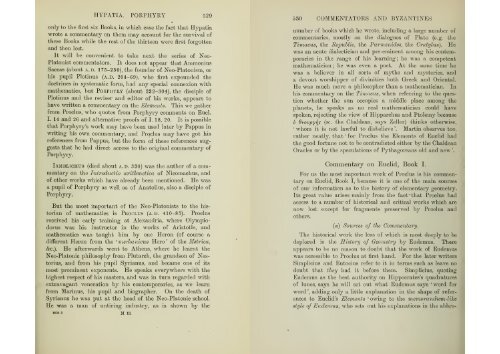A history of Greek mathematics Vol.II from Aristarchus to Diophantus by Heath, Thomas Little, Sir, 1921
MACEDONIA is GREECE and will always be GREECE- (if they are desperate to steal a name, Monkeydonkeys suits them just fine) ΚΑΤΩ Η ΣΥΓΚΥΒΕΡΝΗΣΗ ΤΩΝ ΠΡΟΔΟΤΩΝ!!! ΦΕΚ,ΚΚΕ,ΚΝΕ,ΚΟΜΜΟΥΝΙΣΜΟΣ,ΣΥΡΙΖΑ,ΠΑΣΟΚ,ΝΕΑ ΔΗΜΟΚΡΑΤΙΑ,ΕΓΚΛΗΜΑΤΑ,ΔΑΠ-ΝΔΦΚ, MACEDONIA,ΣΥΜΜΟΡΙΤΟΠΟΛΕΜΟΣ,ΠΡΟΣΦΟΡΕΣ,ΥΠΟΥΡΓΕΙΟ,ΕΝΟΠΛΕΣ ΔΥΝΑΜΕΙΣ,ΣΤΡΑΤΟΣ, ΑΕΡΟΠΟΡΙΑ,ΑΣΤΥΝΟΜΙΑ,ΔΗΜΑΡΧΕΙΟ,ΝΟΜΑΡΧΙΑ,ΠΑΝΕΠΙΣΤΗΜΙΟ,ΛΟΓΟΤΕΧΝΙΑ,ΔΗΜΟΣ,LIFO,ΛΑΡΙΣΑ, ΠΕΡΙΦΕΡΕΙΑ,ΕΚΚΛΗΣΙΑ,ΟΝΝΕΔ,ΜΟΝΗ,ΠΑΤΡΙΑΡΧΕΙΟ,ΜΕΣΗ ΕΚΠΑΙΔΕΥΣΗ,ΙΑΤΡΙΚΗ,ΟΛΜΕ,ΑΕΚ,ΠΑΟΚ,ΦΙΛΟΛΟΓΙΚΑ,ΝΟΜΟΘΕΣΙΑ,ΔΙΚΗΓΟΡΙΚΟΣ,ΕΠΙΠΛΟ, ΣΥΜΒΟΛΑΙΟΓΡΑΦΙΚΟΣ,ΕΛΛΗΝΙΚΑ,ΜΑΘΗΜΑΤΙΚΑ,ΝΕΟΛΑΙΑ,ΟΙΚΟΝΟΜΙΚΑ,ΙΣΤΟΡΙΑ,ΙΣΤΟΡΙΚΑ,ΑΥΓΗ,ΤΑ ΝΕΑ,ΕΘΝΟΣ,ΣΟΣΙΑΛΙΣΜΟΣ,LEFT,ΕΦΗΜΕΡΙΔΑ,ΚΟΚΚΙΝΟ,ATHENS VOICE,ΧΡΗΜΑ,ΟΙΚΟΝΟΜΙΑ,ΕΝΕΡΓΕΙΑ, ΡΑΤΣΙΣΜΟΣ,ΠΡΟΣΦΥΓΕΣ,GREECE,ΚΟΣΜΟΣ,ΜΑΓΕΙΡΙΚΗ,ΣΥΝΤΑΓΕΣ,ΕΛΛΗΝΙΣΜΟΣ,ΕΛΛΑΔΑ, ΕΜΦΥΛΙΟΣ,ΤΗΛΕΟΡΑΣΗ,ΕΓΚΥΚΛΙΟΣ,ΡΑΔΙΟΦΩΝΟ,ΓΥΜΝΑΣΤΙΚΗ,ΑΓΡΟΤΙΚΗ,ΟΛΥΜΠΙΑΚΟΣ, ΜΥΤΙΛΗΝΗ,ΧΙΟΣ,ΣΑΜΟΣ,ΠΑΤΡΙΔΑ,ΒΙΒΛΙΟ,ΕΡΕΥΝΑ,ΠΟΛΙΤΙΚΗ,ΚΥΝΗΓΕΤΙΚΑ,ΚΥΝΗΓΙ,ΘΡΙΛΕΡ, ΠΕΡΙΟΔΙΚΟ,ΤΕΥΧΟΣ,ΜΥΘΙΣΤΟΡΗΜΑ,ΑΔΩΝΙΣ ΓΕΩΡΓΙΑΔΗΣ,GEORGIADIS,ΦΑΝΤΑΣΤΙΚΕΣ ΙΣΤΟΡΙΕΣ, ΑΣΤΥΝΟΜΙΚΑ,ΦΙΛΟΣΟΦΙΚΗ,ΦΙΛΟΣΟΦΙΚΑ,ΙΚΕΑ,ΜΑΚΕΔΟΝΙΑ,ΑΤΤΙΚΗ,ΘΡΑΚΗ,ΘΕΣΣΑΛΟΝΙΚΗ,ΠΑΤΡΑ, ΙΟΝΙΟ,ΚΕΡΚΥΡΑ,ΚΩΣ,ΡΟΔΟΣ,ΚΑΒΑΛΑ,ΜΟΔΑ,ΔΡΑΜΑ,ΣΕΡΡΕΣ,ΕΥΡΥΤΑΝΙΑ,ΠΑΡΓΑ,ΚΕΦΑΛΟΝΙΑ, ΙΩΑΝΝΙΝΑ,ΛΕΥΚΑΔΑ,ΣΠΑΡΤΗ,ΠΑΞΟΙ
MACEDONIA is GREECE and will always be GREECE- (if they are desperate to steal a name, Monkeydonkeys suits them just fine)
ΚΑΤΩ Η ΣΥΓΚΥΒΕΡΝΗΣΗ ΤΩΝ ΠΡΟΔΟΤΩΝ!!!
ΦΕΚ,ΚΚΕ,ΚΝΕ,ΚΟΜΜΟΥΝΙΣΜΟΣ,ΣΥΡΙΖΑ,ΠΑΣΟΚ,ΝΕΑ ΔΗΜΟΚΡΑΤΙΑ,ΕΓΚΛΗΜΑΤΑ,ΔΑΠ-ΝΔΦΚ, MACEDONIA,ΣΥΜΜΟΡΙΤΟΠΟΛΕΜΟΣ,ΠΡΟΣΦΟΡΕΣ,ΥΠΟΥΡΓΕΙΟ,ΕΝΟΠΛΕΣ ΔΥΝΑΜΕΙΣ,ΣΤΡΑΤΟΣ, ΑΕΡΟΠΟΡΙΑ,ΑΣΤΥΝΟΜΙΑ,ΔΗΜΑΡΧΕΙΟ,ΝΟΜΑΡΧΙΑ,ΠΑΝΕΠΙΣΤΗΜΙΟ,ΛΟΓΟΤΕΧΝΙΑ,ΔΗΜΟΣ,LIFO,ΛΑΡΙΣΑ, ΠΕΡΙΦΕΡΕΙΑ,ΕΚΚΛΗΣΙΑ,ΟΝΝΕΔ,ΜΟΝΗ,ΠΑΤΡΙΑΡΧΕΙΟ,ΜΕΣΗ ΕΚΠΑΙΔΕΥΣΗ,ΙΑΤΡΙΚΗ,ΟΛΜΕ,ΑΕΚ,ΠΑΟΚ,ΦΙΛΟΛΟΓΙΚΑ,ΝΟΜΟΘΕΣΙΑ,ΔΙΚΗΓΟΡΙΚΟΣ,ΕΠΙΠΛΟ, ΣΥΜΒΟΛΑΙΟΓΡΑΦΙΚΟΣ,ΕΛΛΗΝΙΚΑ,ΜΑΘΗΜΑΤΙΚΑ,ΝΕΟΛΑΙΑ,ΟΙΚΟΝΟΜΙΚΑ,ΙΣΤΟΡΙΑ,ΙΣΤΟΡΙΚΑ,ΑΥΓΗ,ΤΑ ΝΕΑ,ΕΘΝΟΣ,ΣΟΣΙΑΛΙΣΜΟΣ,LEFT,ΕΦΗΜΕΡΙΔΑ,ΚΟΚΚΙΝΟ,ATHENS VOICE,ΧΡΗΜΑ,ΟΙΚΟΝΟΜΙΑ,ΕΝΕΡΓΕΙΑ, ΡΑΤΣΙΣΜΟΣ,ΠΡΟΣΦΥΓΕΣ,GREECE,ΚΟΣΜΟΣ,ΜΑΓΕΙΡΙΚΗ,ΣΥΝΤΑΓΕΣ,ΕΛΛΗΝΙΣΜΟΣ,ΕΛΛΑΔΑ, ΕΜΦΥΛΙΟΣ,ΤΗΛΕΟΡΑΣΗ,ΕΓΚΥΚΛΙΟΣ,ΡΑΔΙΟΦΩΝΟ,ΓΥΜΝΑΣΤΙΚΗ,ΑΓΡΟΤΙΚΗ,ΟΛΥΜΠΙΑΚΟΣ, ΜΥΤΙΛΗΝΗ,ΧΙΟΣ,ΣΑΜΟΣ,ΠΑΤΡΙΔΑ,ΒΙΒΛΙΟ,ΕΡΕΥΝΑ,ΠΟΛΙΤΙΚΗ,ΚΥΝΗΓΕΤΙΚΑ,ΚΥΝΗΓΙ,ΘΡΙΛΕΡ, ΠΕΡΙΟΔΙΚΟ,ΤΕΥΧΟΣ,ΜΥΘΙΣΤΟΡΗΜΑ,ΑΔΩΝΙΣ ΓΕΩΡΓΙΑΔΗΣ,GEORGIADIS,ΦΑΝΤΑΣΤΙΚΕΣ ΙΣΤΟΡΙΕΣ, ΑΣΤΥΝΟΜΙΚΑ,ΦΙΛΟΣΟΦΙΚΗ,ΦΙΛΟΣΟΦΙΚΑ,ΙΚΕΑ,ΜΑΚΕΔΟΝΙΑ,ΑΤΤΙΚΗ,ΘΡΑΚΗ,ΘΕΣΣΑΛΟΝΙΚΗ,ΠΑΤΡΑ, ΙΟΝΙΟ,ΚΕΡΚΥΡΑ,ΚΩΣ,ΡΟΔΟΣ,ΚΑΒΑΛΑ,ΜΟΔΑ,ΔΡΑΜΑ,ΣΕΡΡΕΣ,ΕΥΡΥΤΑΝΙΑ,ΠΑΡΓΑ,ΚΕΦΑΛΟΝΙΑ, ΙΩΑΝΝΙΝΑ,ΛΕΥΚΑΔΑ,ΣΠΑΡΤΗ,ΠΑΞΟΙ
Create successful ePaper yourself
Turn your PDF publications into a flip-book with our unique Google optimized e-Paper software.
HYPATIA. PORPHYRY 529<br />
only <strong>to</strong> the first six Books, in which case the fact that Hypatia<br />
wrote a commentary on them may account for the survival <strong>of</strong><br />
these Books while the rest <strong>of</strong> the thirteen were first forgotten<br />
and then lost.<br />
It will be convenient <strong>to</strong> take next the series <strong>of</strong> Neo-<br />
Pla<strong>to</strong>nist commenta<strong>to</strong>rs. It does not appear that Ammonius<br />
Saccas (about a.d. 175-250), the founder <strong>of</strong>. Neo-Pla<strong>to</strong>nism, or<br />
his pupil Plotinus (a.d. 204-69), who first expounded the<br />
doctrines in systematic form, had any special connexion with<br />
<strong>mathematics</strong>, but Porphyry (about 232-304), the disciple <strong>of</strong><br />
Plotinus and the reviser and edi<strong>to</strong>r <strong>of</strong> his works, appears <strong>to</strong><br />
have written a commentary on the Elements. This we gather<br />
<strong>from</strong> Proclus, who quotes <strong>from</strong> Porphyry comments on Eucl.<br />
I. 14 and 26 and alternative pro<strong>of</strong>s <strong>of</strong> I. 18, 20. It is possible<br />
that Porphyry's work may have been used later <strong>by</strong> Pappus in<br />
writing his own commentary, and Proclus may have got his<br />
references <strong>from</strong> Pappus, but the form <strong>of</strong> these references suggests<br />
that he had direct access <strong>to</strong> the original commentary <strong>of</strong><br />
Porphyry.<br />
Iamblichus (died about a.d. 330) was the author <strong>of</strong> a commentary<br />
on the Introductio arithmetica <strong>of</strong> Nicomachus, and<br />
<strong>of</strong> other works which have already been mentioned. He was<br />
a pupil <strong>of</strong> Porphyry as well as <strong>of</strong> Ana<strong>to</strong>lius, also a disciple <strong>of</strong><br />
Porphyry.<br />
But the most important <strong>of</strong> the Neo-Pla<strong>to</strong>nists <strong>to</strong> the his<strong>to</strong>rian<br />
<strong>of</strong> <strong>mathematics</strong> is Proclus (a.d. 410-85). Proclus<br />
received his early training at Alexandria, where Olympiodorus<br />
was his instruc<strong>to</strong>r in the works <strong>of</strong> Aris<strong>to</strong>tle, and<br />
<strong>mathematics</strong> was taught him <strong>by</strong> one Heron (<strong>of</strong> course a<br />
different Heron <strong>from</strong> the '<br />
mechanicus Hero' <strong>of</strong> the Metrica,<br />
&c). He afterwards went <strong>to</strong> Athens, where he learnt the<br />
Neo-Pla<strong>to</strong>nic philosophy <strong>from</strong> Plutarch, the grandson <strong>of</strong><br />
•<br />
Nes<strong>to</strong>rius,<br />
and <strong>from</strong> his pupil Syrianus, and became one <strong>of</strong> its<br />
most prominent exponents. He speaks everywhere with the<br />
highest respect <strong>of</strong> his masters, and was in turn regarded with<br />
extravagant veneration <strong>by</strong> his contemporaries, as we learn<br />
<strong>from</strong> Marinus, his pupil and biographer. On the death <strong>of</strong><br />
Syrianus he was put at the head <strong>of</strong> the Neo-Pla<strong>to</strong>nic school.<br />
He was a man <strong>of</strong> untiring industry, as is shown <strong>by</strong> the<br />
1523.2 M m<br />
530 COMMENTATORS AND BYZANTINES<br />
number <strong>of</strong> books which he wrote, including a large number <strong>of</strong><br />
commentaries, mostly on the dialogues <strong>of</strong> PJa<strong>to</strong> (e.g. the<br />
Timaeus, the Republic, the Parmenides, the Cratylus). He<br />
was an acute dialectician and pre-eminent among his contemporaries<br />
in the range <strong>of</strong> his learning; he was a competent<br />
mathematician ; he was even a poet. At the same time he<br />
was a believer in all sorts <strong>of</strong> myths and mysteries, and<br />
a devout worshipper <strong>of</strong> divinities both <strong>Greek</strong> and Oriental.<br />
He was much more a philosopher than a mathematician. In<br />
his commentary on the Timaeus, when referring <strong>to</strong> the question<br />
whether the sun occupies a middle place among the<br />
planets, he speaks as no real mathematician could have<br />
spoken, rejecting the view <strong>of</strong> Hipparchus and P<strong>to</strong>lemy because<br />
6 Qzovpyos (sc. the Chaldean, says Zeller) thinks otherwise,<br />
whom it is not lawful <strong>to</strong> disbelieve '. Martin observes <strong>to</strong>o,<br />
'<br />
rather neatly, that for ' Proclus the Elements <strong>of</strong> Euclid had<br />
the good fortune not <strong>to</strong> be contradicted either <strong>by</strong> the Chaldean<br />
Oracles or <strong>by</strong> the speculations <strong>of</strong> Pythagoreans old and new '.<br />
Commentary on Euclid, Book I.<br />
For us the most important work <strong>of</strong> Proclus is his<br />
commentary<br />
on Euclid, Book I, because it is one <strong>of</strong> the main sources<br />
<strong>of</strong> our information as <strong>to</strong> the <strong>his<strong>to</strong>ry</strong> <strong>of</strong> elementary geometry.<br />
Its great value arises mainly <strong>from</strong> the fact * that Proclus had<br />
access <strong>to</strong> a number <strong>of</strong> his<strong>to</strong>rical and critical works which are<br />
now lost except for fragments preserved <strong>by</strong> Proclus and<br />
others.<br />
(a) Sources <strong>of</strong> the Commentary.<br />
The his<strong>to</strong>rical work the loss <strong>of</strong> which is most deeply <strong>to</strong> be<br />
deplored is the His<strong>to</strong>ry <strong>of</strong> Geometry <strong>by</strong> Eudemus. There<br />
appears <strong>to</strong> be no reason <strong>to</strong> doubt that the work <strong>of</strong> Eudemus<br />
was accessible <strong>to</strong> Proclus at first hand. For the later writers<br />
Simplicius and Eu<strong>to</strong>cius refer <strong>to</strong> it in terms such as leave no<br />
doubt that they had it before them. Simplicius, quoting<br />
Eudemus as the best authority on Hippocrates's quadratures<br />
<strong>of</strong> lunes, says he will set out what Eudemus says * word for<br />
word ', adding only a little explanation in the shape <strong>of</strong> references<br />
<strong>to</strong> Euclid's Elements 'owing <strong>to</strong> the memorandum-like<br />
style <strong>of</strong> Eudemus, who sets out his explanations in the abbre-

















